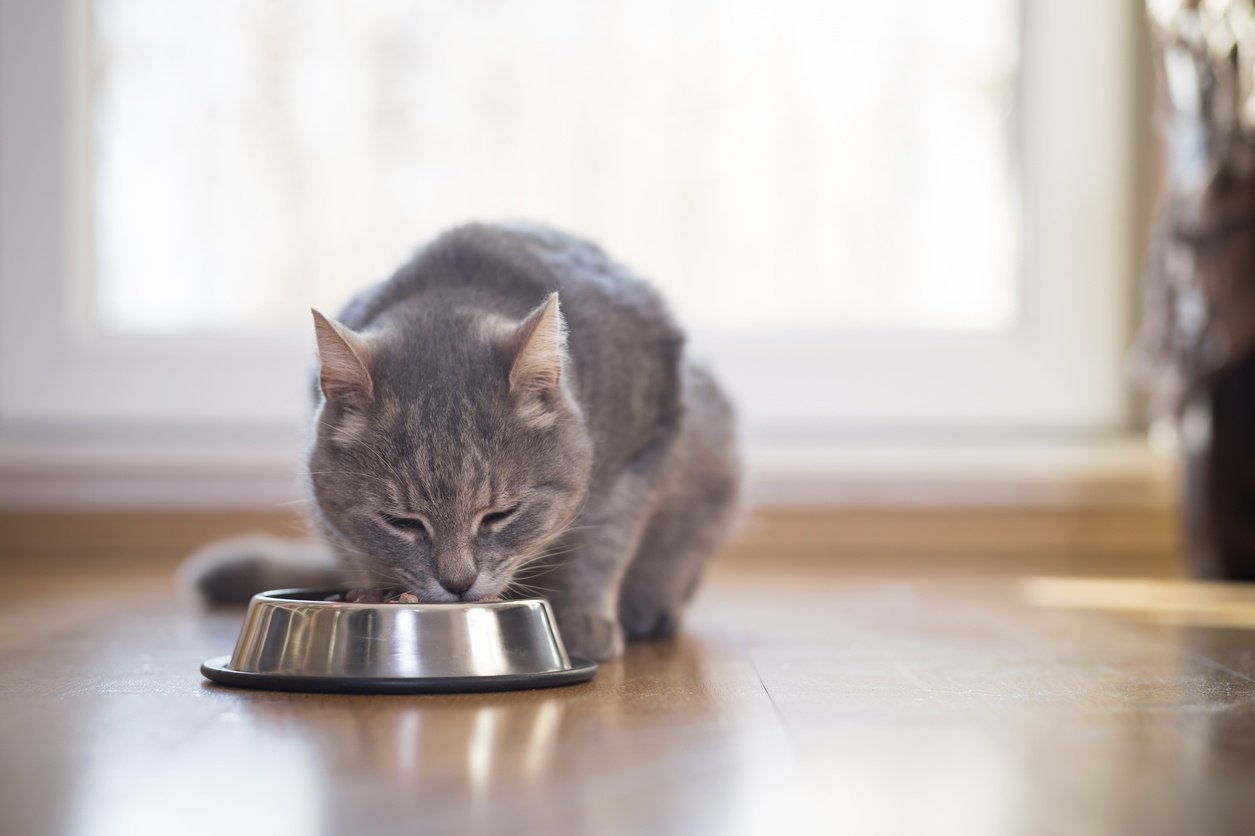5 Foods Cats Should Not Eat
•Posted on June 18 2018

Cats are renowned for being fussy eaters, but table scraps should be off the menu completely as some can prove to be poisonous and toxic to your cat. Any food that is not specifically formulated for cats can affect the digestive system causing loss of appetite, diarrhoea and vomiting. Sticking to feline friendly snacks and nutritionally complete cat food will ensure a long, healthy, happy life with your fur friend. Some foods you should keep away from are:
Dairy Products
The majority of cats are lactose intolerant when they become adults. So that slice of cheese or saucer of milk can result in digestive upset casing upset stomach or diarrhoea as their digestive system cannot process dairy products.Dog Food
Your dog’s food may look very similar to your cat’s however, be aware that they are formulated very differently and cat’s need completely different types of nutrients to dogs to grow and stay healthy. Cats require Amino Acid Taurine which dogs are able to produce on their own whilst cat’s need complete diets with them added. Without this vital nutrient and everything else your cat requires she can develop various heart diseases, suffer with their eye sight, coat and kidneys.Chocolate
Most cats tend to stay away from chocolate, but some can be eager to try out their new find. Chocolate contains a toxic ingredient, theobromine, which is poisonous to cats. The amount of theobromine chocolate contains depends of the sort it is, darker chocolate contains higher theobromine levels, but it is still present in milk chocolate. Humans can easily break down theobromine, but your cat’s system can’t as they process it much slowly which causes it to build up to toxic levels. Theobromine mainly affects the heart, central nervous system and kidneys. If your cat consumes any sort of chocolate then you will notice symptoms around four to twenty-four hours after consumption and symptoms include: vomiting, diarrheoa, restlessness, hyperactivity, seizures and in more severe cases, death. You must contact your vet immediately. Never give your cat chocolate as a reward or treat and keep them away from caffeinated drinks too.Onions & Garlic
Garlic as well as onions, shallots, leeks and chives are all classified as a species of the Allium family. If cats consume any foods from the Allium species, then it can cause a condition known as Hemolytic Anemia which causes the red blood cells to undergo a chemical attack and reduced ability to deliver oxygen to the body. Toxicity can occur whether they are fresh, cooked or in a dry, powdered format such as in spices. Symptoms would most likely occur one to three days after the anemia develops and these include: pale gums, collapsing, weakness, difficulty breathing and lethargy. You may notice your cat has red urine and yellow eyes from the pigments released by the destruction of the red blood cells.Raw Eggs, Raw Meat & Bones
Just like humans, if cats consume raw eggs or raw meat they are at a high risk of developing salmonella or E.coli. Raw meat can be infected with bacteria and parasites which on consumption can be transferred to your cat and sometimes even yourself. A rare problem with raw eggs is in a protein within the raw egg whites called Avidin – this can interfere with the absorption of a B Vitamin named Biotin this can cause skin problems or induce issues with your cat’s coat. Never give your cat any form of bones as these can cause your cat to choke, get splinters, cause obstruction or cut inside of the digestive system.How to Prevent Your Cat Eating the Wrong Foods:
- Store all foods out of your cat’s reach – cat proof locks would be advisable for the cupboards
- Don’t leave foods out on the counter when cooking or eating
- Don’t feed them any table scraps
- When having barbecues or parties, don’t let guests feed your cat


